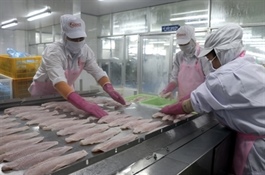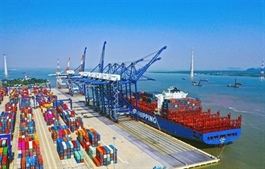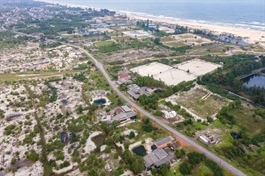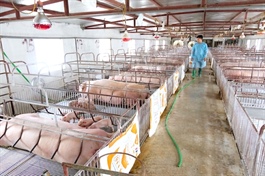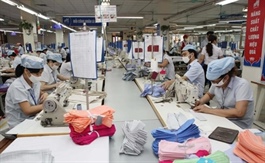Japanese seafood companies try processing Hokkaido scallops in Vietnam
Japanese seafood companies try processing Hokkaido scallops in Vietnam
Japanese seafood companies have launched a trial program which involves processing Hokkaido scallops in Vietnam, where labor costs are relatively low, following a recent ban by China on Japanese seafood imports, according to Japan’s Nikkei Asia newspaper.
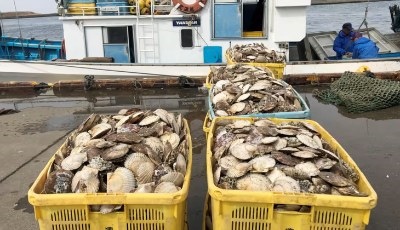
Fishermen land scallops at Nemuro Port in Nemuro, Hokkaido, Japan in April 2022. Photo: Reuters |
Seafood e-retailer Foodison is joining hands with wholesaler Ebisu Shokai and trading houses Ocean Road and Nosui to export more than 20 tonnes of unshelled scallops to Vietnam for processing on a trial basis.
Under the agreement, scallops purchased by Ocean Road from Ebisu and exported to Vietnam will be processed and exported back to Japan to be sold by Foodison, Ebisu, and Nosui to retailers and restaurants.
The first batch of scallops has already been delivered to Vietnam, where they will be processed into half-shell scallops for cooking, sushi-grade meat, and frozen scallops to be eaten raw.
Ocean Road currently processes shrimp and crab in Vietnam before exporting these seafood products back to Japan for consumption.
Scallop processors in Vietnam have obtained Hazard Analysis and Critical Control Points (HACCP) certifications – an international recognition for food safety. This allows Japanese companies to deliver seafood products from Vietnam to markets such as the U.S. and the EU.
Based on the results of the pilot program, the companies involved will decide whether to continue scallop processing in Vietnam, where the labor costs in scallop processing are only 20-30 percent of those in Japan.
Despite factoring in shipping costs, the anticipated price of scallops processed in Vietnam for use in sushi and other raw preparations is expected to be lower than that of scallops processed in Japan.
Half-shell scallops, which require less processing, are expected to be priced similarly to their Japanese counterparts.
Japan currently lacks the manpower to handle the country’s scallop processing needs, Nikkei Asia cited Kenichiro Hoshino, a manager at Foodison, as saying.
Last year, Japan exported nearly 500,000 metric tons of shell scallops to global markets, including 140,000 metric tons to China, of which about 100,000 metric tons were for processing.
Nevertheless, the quantity of unprocessed scallops in Japan has seen a significant increase since August 2023.
This surge can be attributed to Beijing's prohibition on seafood imports from Japan, a response to Japan's release of treated radioactive water from the Fukushima Daiichi Nuclear Power Plant into the Pacific Ocean.
Meanwhile, demand for this product in other markets is also limited, and scallops cannot be processed in time in Japan due to labor shortages.
The Japanese government has had to take many support measures, including subsidies to cover the costs of processing equipment and storage.










